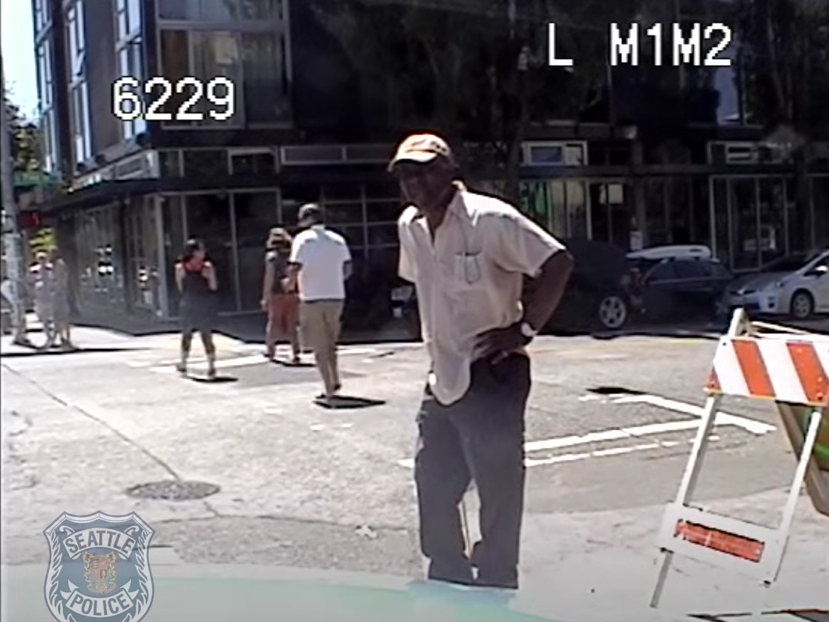In the past few months, the furor over police accountability has touched off a tricky debate over the use of body cameras. President Obama, along with many civil-rights activists, have called for their increased use by officers. Yet, as Seattle saw when a once anonymous programmer began requesting massive amounts of both body- and dash-camera videos and posting them online, there are privacy issues involved. And no less liberal an organization than the ACLU has suggested that limits be placed on public access to the footage.
That debate has now hit the legislature. On Thursday, the House judiciary committee will hear two bills that would dramatically reduce the number of police videos that could be released.
To the extent that anybody knows about them, they are thought of as body-cam bills. But that’s a misnomer. Both bills would equally affect dash-cam footage, even though such recordings are almost always taken in public places, unlike body cams, which may travel with officers into private homes. The bills would effectively reverse a state Supreme Court ruling last June that said dash-cam footage must be turned over upon request, just like any other public document.
If you want to know why dash- and body-cam videos are important, take a look at the footage of a Seattle officer’s bizarre arrest of a 70-year-old African-American man for walking with a golf club (below). Or peruse the online channels (on YouTube and LiveLeak) of the formerly anonymous programer, Timothy Clemans, who has posted an array of enlightening videos, showing the good, the bad, and the ugly.
One of the bills is backed by the ACLU, the other by the Washington Association of Sheriffs and Police Chiefs. There’s some argument about which would restrict access more. Jared Friend, director of the ACLU of Washington’s technology and liberty program, makes a convincing case that the WASPC bill, HB 1917, is the dubious winner on that front. If someone other than the subject of a video is requesting a copy, that person must obtain a court order ruling that the public interest in the video’s release outweighs the privacy concerns.
How many reporters, never mind ordinary members of the public, are going to have the time, resources, and energy to take the matter to court? Very few. “It’s incredibly onerous,” Friend says.
Yet the bill Friend is supporting, HB 1910 (with a companion bill in the Senate sponsored by newbie Seattle legislator Pramila Jayapal) places significant roadblocks in the way of access too.
Perhaps the biggest is that videos would be kept only up to 75 days unless they are “flagged” because of a misconduct complaint or use-of-force investigation, at the request of the person filmed, or because some other requester “presents specific, articulable facts to support a reasonable belief that law enforcement misconduct occurred.”
Michele Earl-Hubbard, board vice-president of the Coalition for Open Government, says that criterion is an “extremely high hurdle.” She argues that the public shouldn’t get to see just misconduct cases but “day-to-day” interactions as well.
It’s also true that some problematic encounters might not give rise to a misconduct complaint within just 75 days. Then the relevant videos might simply be destroyed. That’s a huge change. Right now, the Seattle Police Department, which has just started a body-cam pilot project, keeps its videos dealing with crimes indefinitely.
“You’re going to lose some things that are valuable,” Friend allows. But he says he and other backers of the bill are trying to make sure that videos are used for police accountability only, and not for other purposes like broad police surveillance or online sensationalism. With both body and dash cameras, he says, “we’re talking about deploying a massive network of cameras.”
Speaking to SW this afternoon, Jayapal also stresses that police cameras should be used “for a very specific purpose,” accountability, and worries that other uses by police will only result in more people of color behind bars.
Still, she says she’s not wedded to the specifics in her bill. She adds that she’s been mulling proposing a “study bill” instead that would look at how police cameras are being used in other jurisdictions.








